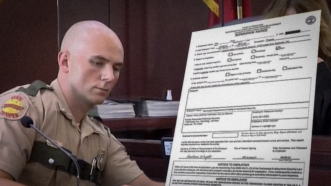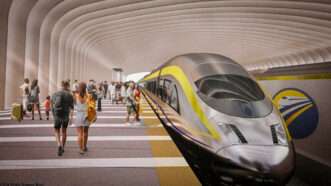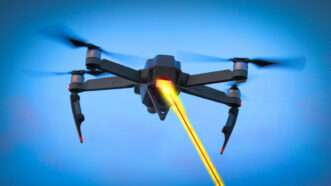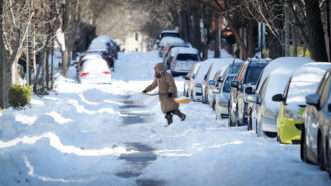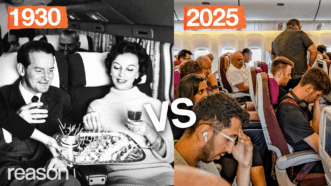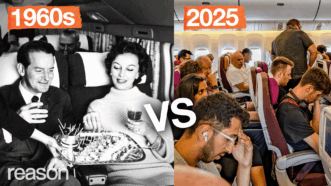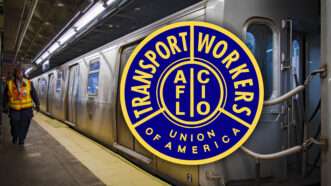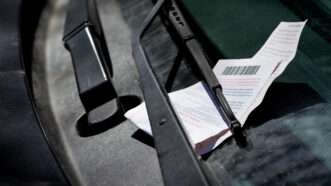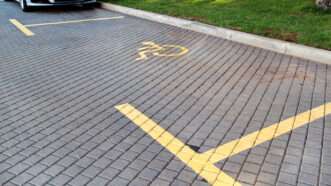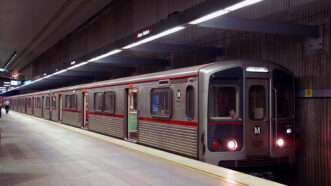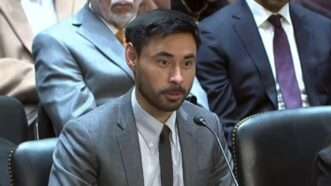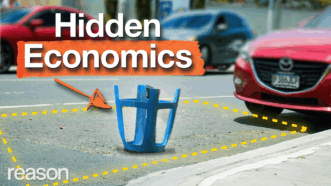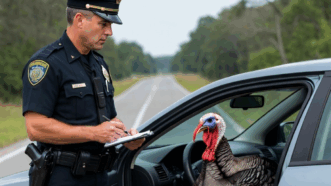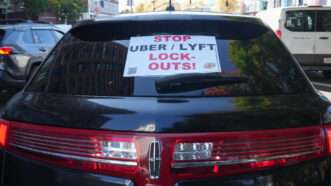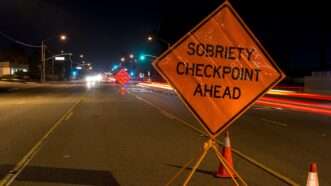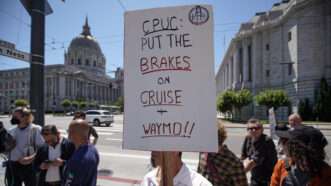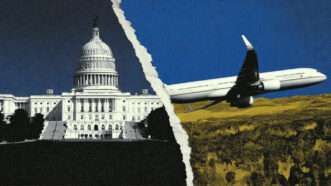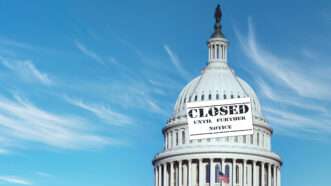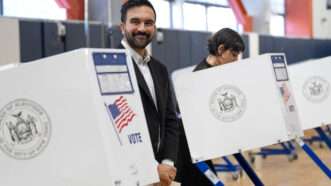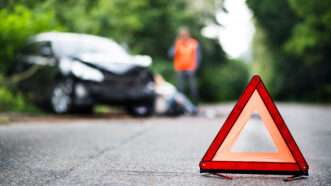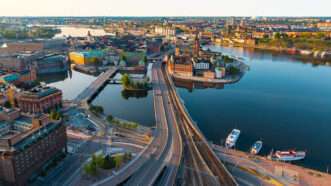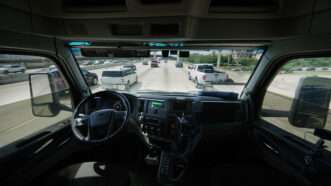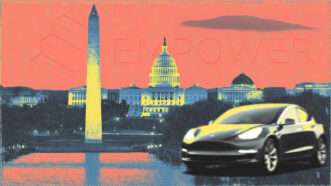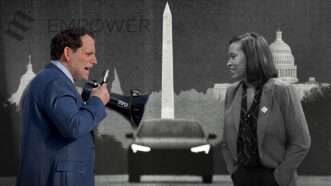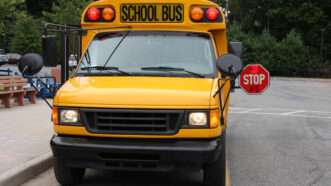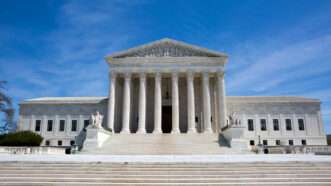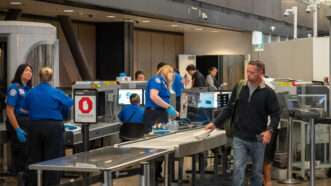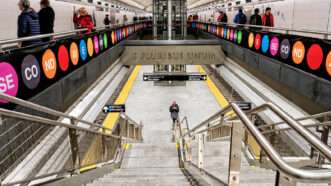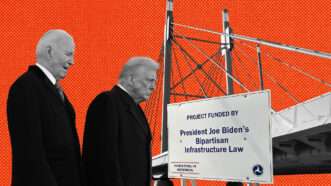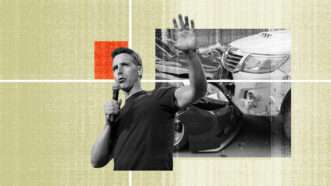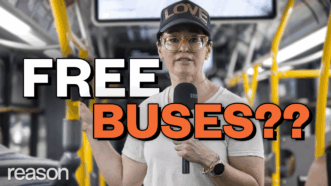Transportation Policy
Pete Buttigieg Says DOGE Was a Good Idea
The progressive Democrat is a front-runner for the 2028 presidential nomination, but has no vision of a smaller, more efficient government.
It Looks Like the End of the Road for Rideshare Alternative Empower in D.C.
The company may soon shutter its operations in the District of Columbia, following recent decisions by the D.C. Superior Court and Court of Appeals.
The El Paso Drone Scare Is the Future of National Security Paranoia
Fear over mysterious objects in the sky keeps disrupting society.
D.C. Public Schools Still Closed as City Struggles To Clear Roads and Sidewalks
As the district's struggle to clear snow drags on, the case for public infrastructure maintenance becomes weaker.
Trump Issues Order Cracking Down on Corporate Homeownership
The president's order is not the comprehensive ban on large investor–owned housing that he promised. But it could still have a chilling effect on the single-family rental market.
The Real Reason Flying Feels Worse Today
The big lesson from the past 50 years of American air travel is that the aesthetics matter a lot less than the economics.
Flying Is Better Than in the Good Old Days, No Matter How Luxurious Those Old Photos Look
The big lesson from the past 50 years of American air travel is that the aesthetics matter a lot less than the economics.
Why Can't New York Get Rid of 2-Person Subway Crews?
Gov. Kathy Hochul vetoed a bill mandating two-person subway crews, but union contracts and bipartisan support ensure New Yorkers will keep paying for them anyway.
Would Star Trek's Transporter Destroy Cities or Save Them?
What a speculative technology can tell us about the demands for urban density and sprawl
17 Ways Politicians Can Make Things Cheaper, Starting With Food, Health Care, and Appliances
A real affordability agenda would unleash free markets, not constrain them.
RFK Jr.'s Airport Gym Woke Font Abolition
Robby Soave and Christian Britschgi bring you another episode of Freed Up where they talk about RFK Jr.'s airport pull ups, prison gangs, welfare fraud, Avatar, and the most based fonts.
LA Metro Is a Dangerous, Costly Mess. What Would Fix It?
Almost half of riders dodge the fares.
CBP Agents Held This U.S. Citizen for Hours Until He Agreed To Let Them Search His Electronic Devices
A federal lawsuit argues that the agency's policy of perusing travelers' personal data without a warrant or probable cause violates the Fourth Amendment.
The Unintended Consequences of Free Parking
When a resource is underpriced, people tend to overuse it. In cities around the world, free or cheap parking leads to a familiar scene: drivers endlessly circling the block, waiting to happen upon someone leaving.
Uncle Sam Makes Thanksgiving Worse
We have many things to be grateful for this time of year. The government isn't one of them.
Thanksgiving Traffic Shows the Highway Trust Fund Is Running on Empty
Federal gas taxes no longer cover the cost of highways, leaving taxpayers to fill a growing multibillion-dollar gap.
California Clears Path for Gig Unions
Even after the Prop 22 rebuke, California is pushing a system that could standardize schedules and undermine gig work.
The New Luddites Want To Pump the Brakes on Driverless Cars
To fully realize human flourishing, America must embrace the future—not fear it.
Trump Is Quietly Expanding the U.S. Military Role in Syria and Gaza
The U.S. government is reportedly looking to put boots on the ground in Damascus to guard the border with Israel.
America's Longest Government Shutdown Shows Why We Must Free Air Traffic Control from Politics
Nations that moved air traffic control out of politics have better tech, no shutdown chaos, and stable funding. Congress keeps choosing dysfunction instead.
Keep the Federal Government Closed
Americans need to go cold turkey from Uncle Sugar.
6 Zohran Mamdani Campaign Promises That New York City Can't Afford
Democratic socialist Zohran Mamdani has been elected mayor by promising New Yorkers “free” programs and services with their own money.
The Trump Administration Waives Obscure Safety Rule Blocking Driverless Trucks
Federal safety regulators have granted driverless truck company Aurora's requested waiver of the warning triangle rule that had acted as a de facto requirement for human drivers in autonomous trucks.
How Stockholm Used a $3 Toll To Tame Its Traffic Congestion
Swedes initially hated the congestion pricing experiment. After they witnessed the effects, they voted to bring it back.
Michigan Mom Fights School District Rule That Says 7-Year-Old Can't Walk 3 Minutes Home From the Bus Stop
The superintendent blamed the “significant liability the district assumes whenever we are transporting students.”
Feds Pump the Brakes on Autonomous Trucks
An obscure federal rule is slowing the self-driving revolution.
Empower Stays on D.C. Streets as Appeals Court Weighs Future of Rideshare Company
The D.C. Superior Court found Empower still in contempt of court despite updating its software-as-a-service agreement and will reconvene in January.
G.M. Takes $1.6 Billion Loss After Electric Vehicle Subsidy Goes Away
It seems like the current market for electric vehicles is entirely the creation of government policy.
D.C. Will Arrest This CEO if His Rideshare Alternative Doesn't Shut Down by Friday
Empower CEO Joshua Sear is guilty of providing a cheap, popular alternative to Uber in the nation's capital.
Conversion Therapy at the Court
Plus: Air traffic controllers get mysteriously sick, California gubernatorial contenders can't answer basic questions, and more...
TSA Watchlists Were Used as Tools of Political Warfare
The former Biden administration is accused of punishing critics without due process.
Mamdani's Fare-Free Buses Wouldn't Be NYC's First Wasteful Public Transit Boondoggle
A previous pilot program found free access slowed down buses in New York City, which already has the slowest buses in the nation.
Donald Trump and Peter Thiel Are Using AI To Supercharge the Surveillance State
Peter Thiel warns of a pending one-world totalitarian government—while himself pushing to supercharge the surveillance state.
MAGA Conservatives, Unions Want To Crush Driverless Trucks. Will the Trump Administration Listen?
A fight over an arcane trucking safety rule reveals the White House's split position on autonomous vehicle regulations.
How Weed Surveillance Drones Destroyed the Lives of These Californians
California tried to use drones to find illegal marijuana operations, but they found building code violations instead.
Trump Once Called Biden's $1.2 Trillion Infrastructure Bill 'Terrible.' Now He's Pretending He Signed It.
He was right the first time.
Josh Hawley's Anti–Driverless Cars Policy Would Kill a Lot of People
Tens of thousands of people die each year in crashes where human error was the cause or a contributing factor.
Trump's Unjust and Illegal Killing of 11 Venezuelans
Killing suspected drug traffickers is both unjust and illegal. And it could be the start of an effort to turn the already awful War on Drugs into something more like a real war, thereby making it even worse.

